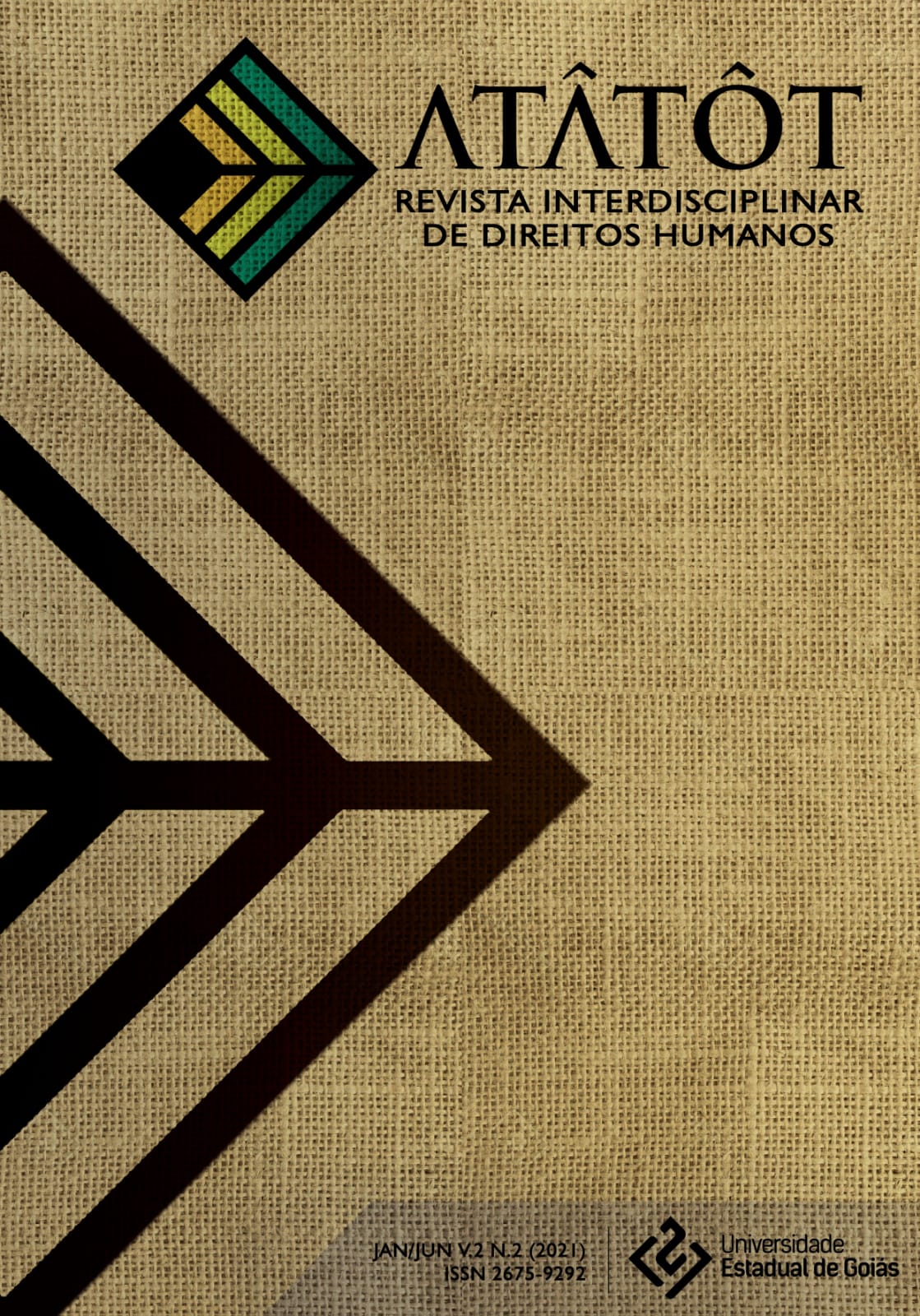Vol. 2 No. 2 (2021): jan./jun.(2)

Atâtôt, the Interdisciplinary Journal of Human Rights of UEG, is an academic publication, open access, peer-reviewed, and published biannually by the State University of Goiás, Central Campus, in Anápolis, GO. Its goal is to create interdisciplinary spaces for the publication of articles, essays, reviews, and other academic texts on the general theme of human rights, focusing on topics related to democracy, constitutional issues, and social struggles for rights.
In its second edition from June 2021, Atâtôt—the Interdisciplinary Journal of Human Rights from UEG—presents discussions on human rights from a critical perspective, bringing insights on the right to have rights of the Romani people, International Criminal Law, the modern social contract, the interdependence of human rights, structural violence of penal control, social justice under Hayek, and the right to health.
The first article, “Including Citizens Who Don't 'Fit': On Some Contradictions of Liberal Anti-Discrimination Discourses”, by Prof. Dr. Juliane Solf (University of Hildersheim, Germany) and Dr. Marek Szilvasi (Independent Researcher, Germany), analyzes the inclusive dimensions of the liberal tradition of anti-discrimination that is based on strengthening civil and political liberties and on neutral public institutions, where each member of society is relevant as bearer of rights and duties under the aegis of the Democratic Rule of Law, to argue that the contradiction between these liberal institutions based on citizenship and the market gradually corrupts the process of equalizing rights holders and results in the romani people being pushed further to the margins of society.
The second article, “International Criminal Law in Defense of Human Rights: Looking Again at the Tip of the Iceberg”, by Prof. Dr. Luis Emmanuel Barbosa da Cunha (PPGD-UFPE), reflects on the role of International Criminal Law and the International Criminal Court in the promotion and protection of human rights.
The third article, “For an Interdisciplinary Approach to the Modern Social Contract: Fiscal Policies, Racial Inequalities and Human Rights”, by Prof. MD. Flavio Batista do Nascimento (Sensu College) and Prof. MD. Philipe Anatole Gonçalves Tolentino (Law/Sensu College), identifies how race and fiscal policies touch the aspect of the materialization of human rights and racial inequalities in the modern social contract.
The fourth article, “Interdependence of Human Rights and the Right to Public Health in Brazil”, by Prof. MD. Carolina Lima Gonçalves (Sensu College), investigates to what extent the recognition of the interdependence between human rights impacts the realization of the right to public health in Brazil.
The fifth article, “Right and Exception: The Structural Violence of Criminal Control”, by Prof. MD. Antônio Leonardo Amorim (UFJ and UNEMAT) and the Law student André Luiz de Resende Júnior (UFJ) seeks, from a perspective of the political economy of the penalty, to show an operationalization of the modes of penal control in the center and in the margins of the capital.
The sixth article, “Social Justice from Hayek's Perspective”, by Profa. MD. Ana Paula de Castro Neves (doctoral student at PPGIDH-UFG), by Prof. MD. Luciano Rodrigues Castro (doctoral student at PPGIDH-UFG) and Prof. Dr. Wagner de Campos Sanz (Faculty of Philosophy/UFG), develops a study of Friedrich August von Hayek's critical approach, from the denomination to the application of Social Justice.
The seventh article, “Fundamental Right to Life: Right to Health as a Principle of Human Dignity”, by master's student Rebeca de Magalhães Melo (IESB) and Prof. Dr. Teresinha de Jesus Araújo Magalhães Nogueira (UFPI and UnB), develops a legal analysis of what leads to the right to judicialization of health in Brazil.
Finally, there is a review of Hannah Arendt's book The Origins of Totalitarianism, “Human Rights, Violence and the Camp Paradigm: A Critical Reception Built on “Arendtiana's Work”, by the master's student in human rights Laura Mallman Marcht (UNIJUI).









